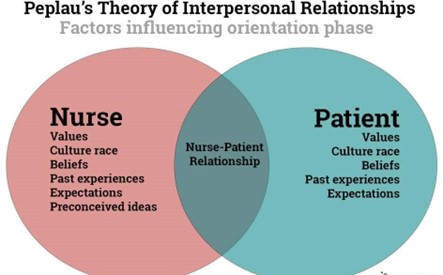The following types of patients require adaptive communication techniques: (Select all that apply)
A patient who has dysphasia
A patient who has schizophrenia
A patient who is elderly
A patient who is deaf
A patient who is blind
Correct Answer : A,D,E
These patients may require adaptive communication techniques to help them communicate effectively with their healthcare providers. For example, a patient with dysphasia may benefit from the use of visual aids or gestures to help them understand and express themselves. A patient who is deaf may require the use of sign language or other forms of non-verbal communication. A patient who is blind may benefit from the use of tactile or auditory aids to help them communicate.
While patients who have schizophrenia (b) or are elderly (c) may also have communication challenges, these conditions do not necessarily require the use of adaptive communication techniques. It is important for healthcare providers to assess each patient’s individual needs and to provide appropriate support and accommodations to help them communicate effectively.
Nursing Test Bank
Naxlex Comprehensive Predictor Exams
Related Questions
Correct Answer is B
Explanation
Hildegard Peplau was a nursing theorist who promoted the interpersonal theory between patient and nurse. She believed that nursing is a therapeutic, interpersonal process that involves the development of a close and personal relationship between the nurse and the patient. According to her theory, the nurse should understand the patient's needs, feelings, and behaviors to develop a personalized care plan that would facilitate the patient's recovery.
Mary Mahoney was a nurse who broke racial barriers and became the first African American registered nurse in the United States.
Hattie Bessment was a nurse who promoted nursing education and research.
Linda Richards was the first professionally trained nurse in the United States and established the first nursing school in Japan.
While these nurses contributed significantly to the nursing profession, they did not specifically promote the interpersonal theory between patient and nurse.

Correct Answer is ["4"]
Explanation
The nurse will administer 4 capsules. Since the order reads Lithium 600 mg and the nurse has 150 mg capsules on hand, the nurse will need to administer 600 mg / (150 mg/capsule) = 4 capsules to fulfill the order.
Whether you are a student looking to ace your exams or a practicing nurse seeking to enhance your expertise , our nursing education contents will empower you with the confidence and competence to make a difference in the lives of patients and become a respected leader in the healthcare field.
Visit Naxlex, invest in your future and unlock endless possibilities with our unparalleled nursing education contents today
Report Wrong Answer on the Current Question
Do you disagree with the answer? If yes, what is your expected answer? Explain.
Kindly be descriptive with the issue you are facing.
